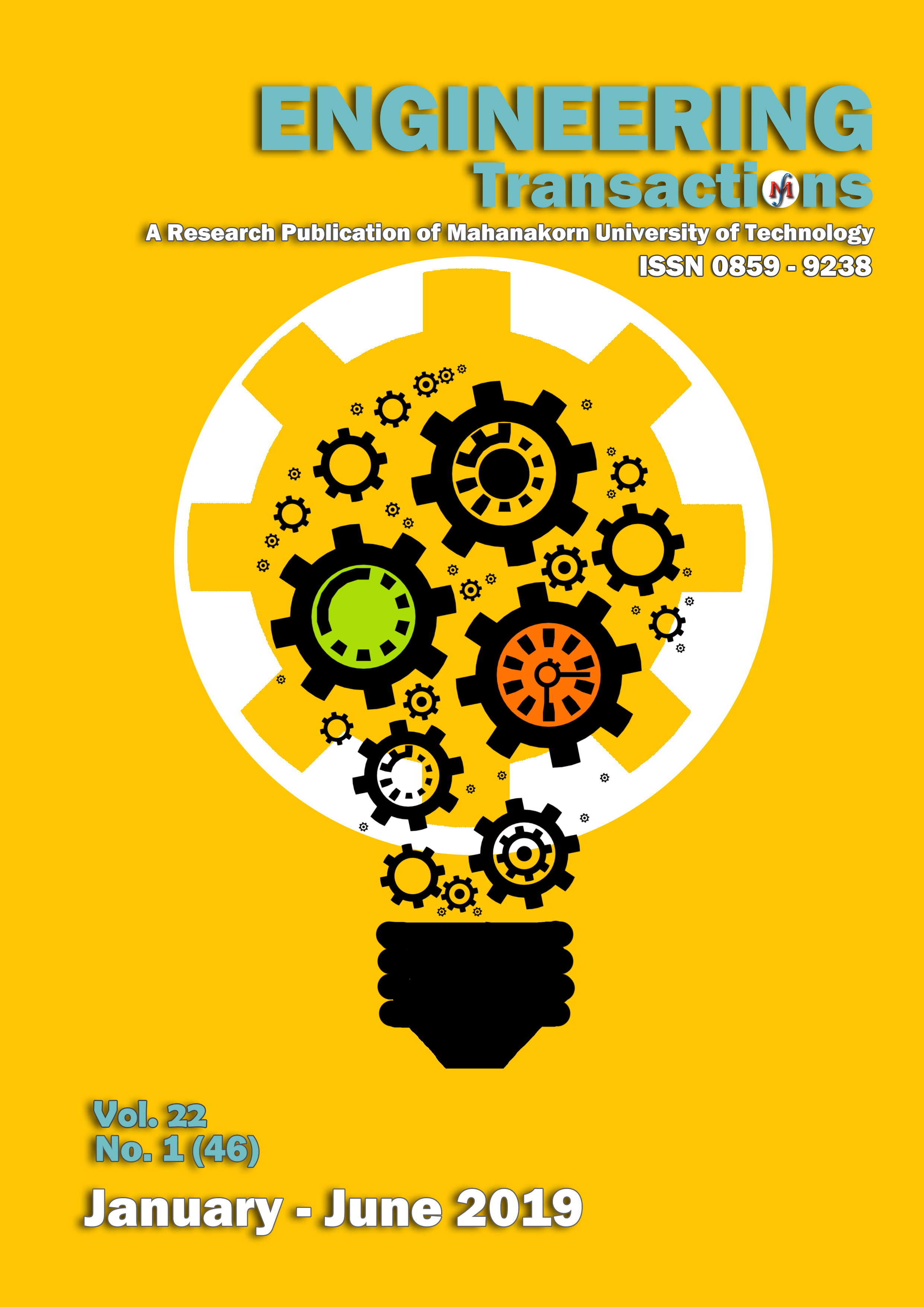Analysis of Reduced Complexity Widely-Linear Adaptive Forgetting-Factor Inverse Square-Root Recursive Least Squares algorithm
Main Article Content
Abstract
Based on widely-linear approach, the proposed reduced complexity inverse square-root recursive least squares algorithm is presented with the methods of adaptive forgetting-factor algorithm. The proposed reduced complexity widely-linear approaches based on inverse square-root recursive least squares algorithm is introduced for a relation between widely-linear and reduced complexity mechanism. By using mean square deviation approach, the proposed optimal forgetting-factor mechanism for optimal gain sequence is presented. Adaptive forgetting-factor inverse square-root recursive least squares algorithm is considered with regard to an optimal forgetting-factor algorithm. A reduced-complexity widely-linear inverse square-root recursive least squares algorithm with the adaptive inverse square-root mechanism, called QR-decomposition for single-carrier frequency-domain equalization systems is presented. Simulation results show that the performance of proposed algorithm is shown that similar to widely-linear approach compared with the conventional algorithm.
Article Details
Copyright @2021 Engineering Transactions: A Research Publication of Mahanakorn University of Technology
Faculty of Engineering and Technology
Mahanakorn University of Technology
References
Douglas,S.C., "Widely-Linear Recursive Least-Squares Algorithm for Adaptive Beamforming", IEEE Int.Conf.on Acoustics, Speech and Signal Processing (ICASSP), pp. 2041-2044, April 2009.
Adali,T., Li,H. and Aloysius,R., "On Properties of the Widely Linear MSE Filter and Its LMS Implementation", IEEE Conf.on Information Sciences and Systems, pp. 876-881, March 2009.
Mandic,D.P., and Goh,V.S.L., Complex Valued Nonlinear Adaptive Filters: Noncircularity, Widely Linear and Neural Models, John Wiley & Sons, 2009.
Leung,S.H., and So,C.F., "Nonlinear RLS Algorithm using Variable Forgetting-factor in Mixture Noise", IEEE Int.Conf.on Acoustics, Speech and Signal Processing (ICASSP), vol.6, pp. 3777-3780, May 2001.
Sitjongsataporn,S., "Modified adaptive forgetting-factor recursive least squares-based frequency-domain equalisation", Int. Electrical Engineering Congress (iEECON), Chiang Mai, Thailand, pp. 165-168, March 2013.
Neto,F.G.A., Nascimento,V.H. and Silva,M.T.M., "Reduced-Complexity Widely Linear Adaptive Estimation", IEEE Int. Symp. on Wireless Communication Systems (ISWCS), pp. 399-403, September 2010.
Verhaegen,M.H., “Round-off Error Propagation in four generally Applicable, Recursive, Least Squares Estimation Schemes”, Automatica, vol. 25, pp. 437-444, 1989.
Sitjongsataporn,S. and Tippaya,S., “An inverse QR Widely-Linear RLS-based Algorithm for SC-FDE Systems”, IEEE Int. Conf. on Electrical Eng./Electronics, Comp. Telecomm. and Information Technology (ECTI-CON), Krabi, Thailand, May 2013.
S.Sitjongsataporn, "Widely-Linear Normalised Orthogonal Gradient Adaptive-based algorithm for OFDM Systems", in Proc. IEEE Int. Conf. on Electrical Eng./Electronics, Comp. Telecomm. and Information Technology (ECTI-CON), Petchaburi, May 2012.
Siqueira,M.G. and Diniz, P.S.R., “Stability Analysis of the QR-Recursive Least Squares Algorithm”, IEEE Midwest Symp. on Circuits and Systems (MWSCAS), vol. 2, pp. 987-990, August 1993.
Hung,H., and Wei,Y., “Blind Adaptive Beamforming Based on Inverse QRD-RLS”, IEEE Int. Symp. on Underwater Technology, pp. 121-124, April 2004.
Haykin, S. Adaptive Filter Theory, Pearson, 2013.
3rd Generation Partnership Project, 3GPP TS 25.101 - Technical Specification Group Radio Access Network; User Equipment (UE) Radio Transmission and Reception (FDD) (Release 9), June 2010.
Hyung G. Myung and David J. Goodman, Single Carrier FDMA: A New Air Interface for Long Term Evolution, John Wiley & Sons, United Kingdom, 2008.


